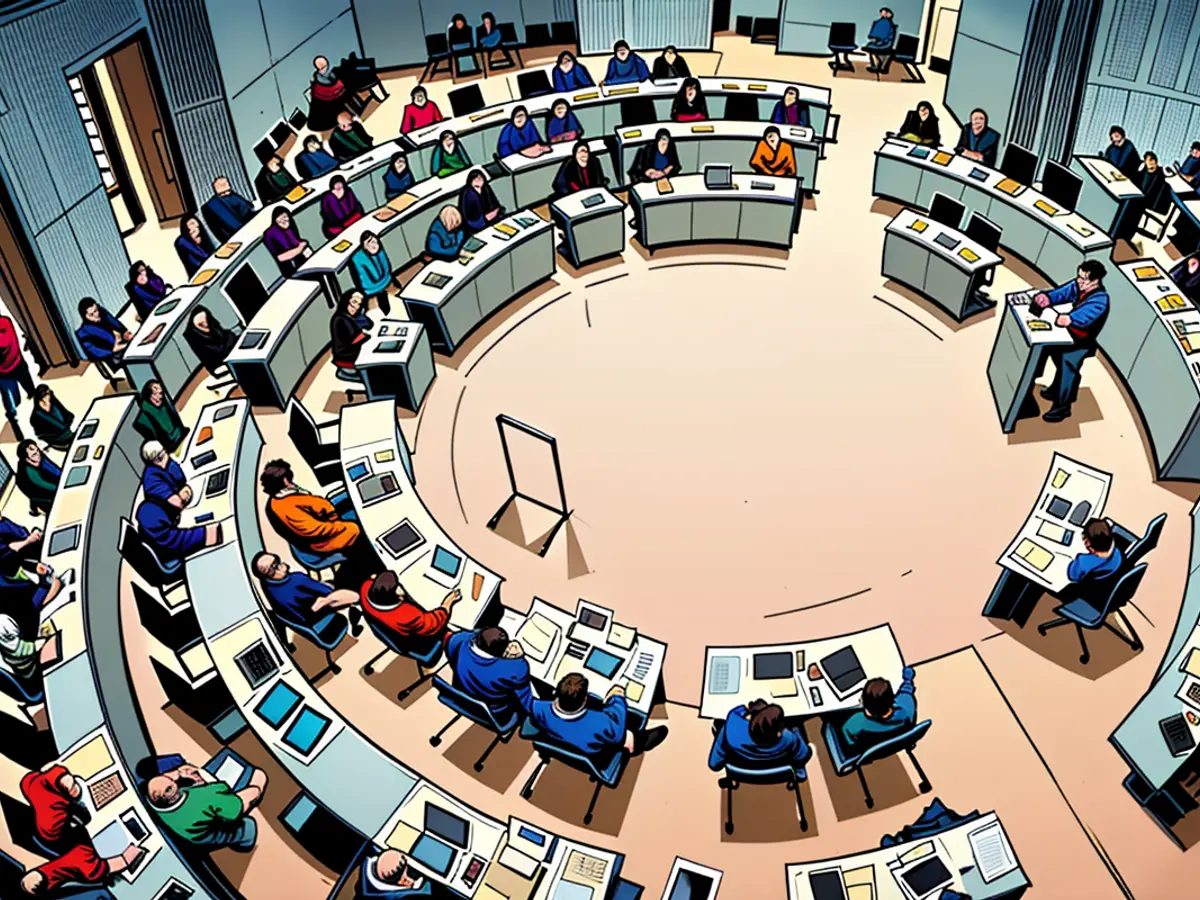The legislative assembly gathers to discuss matters of state. - Parliamentary speaking time to be reduced by half.
To address outdated parliamentary debates, the Mecklenburg-Vorpommern state parliament has introduced new changes. These measures were passed on Wednesday, according to Claudia Samler, the parliamentary manager of the SPD faction. One significant adjustment is cutting in half the speaking time allocated for individual agenda items.
Each party will also receive 20 minutes, plus two minutes attributed to every member, as added bonuses. These additional resources can be used by factions to zero in on crucial topics. The initiative will lead to a reduction of around a third in debate time, according to Samler. There are ongoing discussions to allow pre-recorded speeches instead of verbal presentations, which may significantly trim speaking time. However, for those who prefer to engage in floor discussions, the freedom remains intact. "If all factions agree, only coordinated decisions can be made," affirmed Samler.
The future introduction of digital voting is also under consideration, saving precious time during roll call votes where names of attendees are typically read out. Additionally, the possibility of holding block votes on multiple topics emerges as a prospect.
The parliament's Legal Affairs Committee will deliberate on these proposals in the coming weeks. The aim is to operationalize these advancements after the summer recess, enabling the administration to manage all demands from the six present factions in a single week of sessions. And in turn, this will reduce dissatisfaction among the elected officials.
The post-election year 2021 saw a significant increase in parliamentary involvement, with six factions being represented. Heavy schedules and overflowing agendas ultimately caused frustration for the parliamentarians. The abundance of motions and proposals introduced caused unsatisfactory endings to session weeks due to time restrictions.
Read also:
- The SPD faction in the Mecklenburg-Vorpommern state parliament supported the reduction of speaking time for individual agenda items, which was proposed to address outdated parliamentary debates.
- During a recent debate in the Mecklenburg-Vorpommern state parliament, Claudia Samler, the parliamentary manager of the SPD faction, highlighted that these changes would reduce speaking time by around a third.
- As part of the measures introduced by the Mecklenburg-Vorpommern state parliament, each party will receive additional speaking time, allowing them to focus on critical topics and potentially leading to a more efficient use of Parliament's time during debates.








